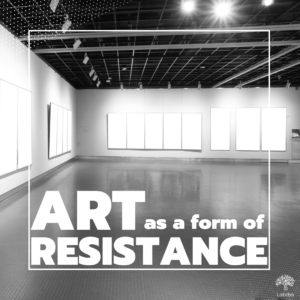By Leena Haider
The tensions between Israel and Palestine continue to rise, this time in one of the holiest sites in Judaism and Islam: Al-Aqsa Mosque.
Al-Aqsa Mosque does not frequently have Israeli politicians walk its soil. However, in a rare and controversial occurrence, right-wing national security minister Itamar Ben-Givr walked on the mosque’s compound despite warnings from Israeli politicians and Hamas that by entering he would be “crossing a red line”.
Ben-Givr is notorious for his anti-Arab, anti-Palestinian, and intense Zionist views. And it’s not only Palestinians that he continues to anger: his extreme stances and behavior caused him to become isolated from other Israeli political groups.
Al-Aqsa and Islam
The mosque has been a symbol of holiness and purity for Muslims since its establishment in Jerusalem in 705 CE. It is perceived as a virtuous location by Muslims due to its connection to Prophet Muhammad’s spiritual journey inside the building. According to Islam, Muhammad was divinely transported from his residence in Medina to the location of Al-Aqsa, where he met Abraham, Moses, Jesus, and other messengers of God in prayer before he ascended into heaven and came face to face with God. Islamic scripture believes that the wall, which they call “al-Buraq,” was where Prophet Muhammad tied up al-Buraq, the animal that accompanied him when he visited heaven.
Al-Aqsa’s city, Jerusalem, was claimed by Israel as the capital of the State in 1967, during the 6-days-war. However, the Palestinian Authority also recognized Jerusalem as its capital. As a result it was decided internationally not to recognize Jerusalem as the capital of either Israel or the Palestinian Authority. The city has great political relevance in the area, as well as a rich history in culture and religion for all three Abrahamic religions: Judaism, Christianity, and Islam.
Al-Aqsa’s major role
Being one of the only possessions they are in control of in the old city of Jerusalem, Al-Aqsa Mosque is particularly valuable to Palestinians. The Jordanian-funded waqf has monitored the mosque since 1967. It was agreed that only Muslims are permitted to enter the mosque for prayer, whereas non-Muslims may enter depending on the time. While this gives Palestinians a sanctuary, Israeli forces and Israeli nationalists have continued to break the agreement, thus angering the Palestinians and further denying them of the few rights they have. Israeli’s brutality against Palestinians within the city has manifested itself through eviction, displacement, physical violence, and deprivation of basic human rights. While the city is undeniably valuable to both Palestinian, Muslims and Christians, and Israeli-Jews, it is the compound itself that lies at the center of the issue.
Muslims have strong spiritual ties with the mosque, but so do Jews. In fact, as mentioned before, the location of the mosque lies on the top of the Second Temple Mount, the holiest site in Judaism. Jewish temple law forbade Jews from the site that historically contained the holiest of holies. That site is believed to be on top of the present-day Temple Mount in Jerusalem in the proximity of the Al Aqsa Mosque. Many Jews today will not walk on that site out of respect for the sacred nature of what is believed to be located there.
Attacks on the Mosque
The tug-of-war between Israel and Palestine about Jerusalem is overshadowed by the violence that the city withstands on a frequent basis. Al-Aqsa has been attacked and has witnessed attacks numerous times over the years. The mosque has survived through tough times and has had to be reconstructed multiple times.
In 2017, Israeli forces fired tear gas and grenades at civilians inside the mosque unprovoked. Then in May of 2021, the Israeli forces clashed with Hamas outside the compound. In the days following Layat-ul-Qadr, one of the holiest days in Islam, the Israeli military stormed the mosque and fired tear gas and grenades at the worshippers inside, leading to an international outcry.
Last April, Israeli forces raided al-Aqsa to attack civilians with tear gas and sound bombs. Earlier this month, the same pattern was followed: the Israeli military raided the mosque while also separately targeting the West Bank. Video footage of the assault found its way online, showing the Israeli military viciously beating the Palestinians civilians with weapons before arresting them and taking them away.
Growing tensions
The hostility between Palestine and Israel is a tale almost 75 years old. The war between both communities has affected civilians on both sides, and Palestinians are facing one of the worst humanitarian crises in the world.
Israeli authorities exerting force violates basic human rights and belittles and undermines the religion of those praying inside the mosque. Ben-Givr’s actions disrespect the Palestinian and Muslim community, and it he has thus been allowed to facilitate and supervise an independent national guard that could potentially accelerate the violence against Palestinains.
This endless war overlooks the need to preserve and respect human life and the atrocious crimes against humanity grow with very little effort to resolve the issues at hand. But in all this Al-Aqsa stands as a pillar of hope and unity for the Palestinian community.




